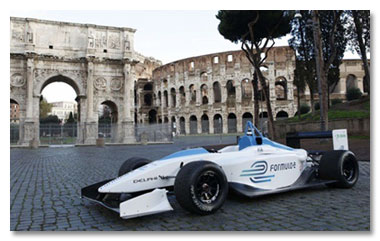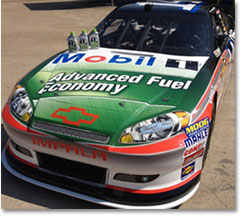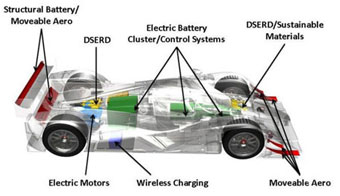RACING FOR THE GREEN OF IT

Motorsports racing does more than provide entertainment; it is a leader in “Green” research, environmentally friendly innovation, and safety.
The first impression of high powered racing machines is not one of environmental friendliness, but there’s a reason why the EPA (Environmental Protection Agency) and DOE (Department of Energy) endorse the IMSA Sports Car Series (formerly American LeMans).

Innovations to improve fuel economy and create cleaner burning, or alternative forms, of power for the cars we drive every day come from racing research, as does the safety technology to protect occupants in the event of an accident.
The number of race cars, and the amount of resources they use, is very small, but the impact they have on the millions of automobiles driven every day is massive.
The list of inventions is nearly endless, but some significant ones include direct fuel injection, low friction (engine internals), long term reliability in real world conditions, aerodynamics, bio fuels, and hybrid technology.
The FIA now sanctions the new Formula E Race series with 100% electrically powered formula race cars.
The Indy Car series has used renewable bio-fuels for years, and continues to advance the efficiency and cleanliness of these fuels.
Alternative clean power sources and hybrids are not only encouraged -
in some classes they are required, to further advance the technology
The FIA’s Formula 1 series, the penultimate international racing series, encourages fuel economy advancements by not allowing fuel stops – competitors are required to complete the entire race distance on one tank of fuel, the size of which is limited. F1 is also using the new KERS (Kinetic Energy Recovery Systems) to further advance hybrid technology and new rules are now in place for smaller more fuel efficient engines. F1 is also a leader in safety technology.
The American LeMans (IMSA) series has long been a leader of “green” technology and that tradition continues as rules are set to encourage alternative forms of power including clean burning diesel, renewable bio fuels, various forms of hybrid technology (including regenerative braking, advanced batteries, super-capacitors, and fly wheels), compressed natural gas, fuel cells, energy efficient tire technology, recycled oils, direct fuel injection, and they now enact fuel flow monitoring & maximum fuel flow restrictions.
Racing technology even transfers to hospitals, as this video demonstrates: http://www.racer.com/video-how-f1-can-helpbabies/article/305703/
The Michelin Green X Challenge was launched in 2008 to reward teams for best fuel efficiency, and lowest environmental impact - American LeMans Series
Racing technology not only makes our passenger cars more fuel efficient and cleaner, it also makes our cars safer. Here are just a few racing derived innovations that have improved automobile safety:
 Safety cage with impact protection
Safety cage with impact protectionArticle by Randy Word. Copyright © 2013-2024, All Rights Reserved.